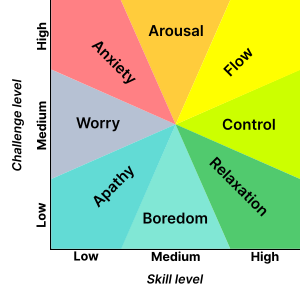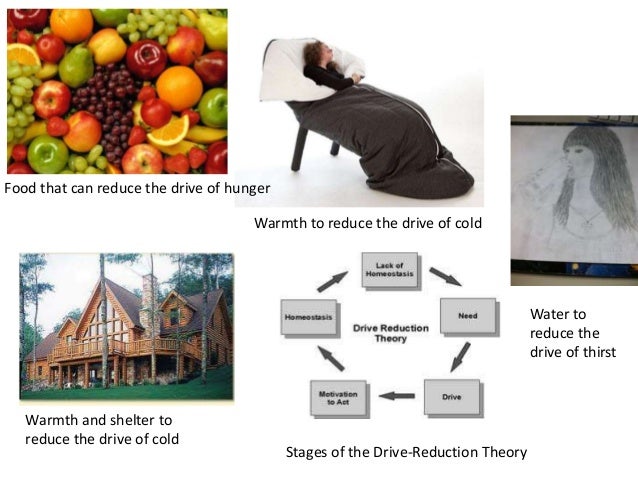Brain State Theory Of Motivation
7. Self-Efficacy and Social Cognitive Theories - PSYCH 484

Social cognitive theory. Self-efficacy theory. Fundamental human capabilities. Overview of Social Cognitive and Self-Efficacy Theories. Social Cognitive Theory proposes that individuals do not simply respond to environmental influences but rather theySelf-efficacy is one cog piece of the cognitive process of The Social Cognitive Theory. Self-efficacy is about a person s belief in their own abilities to successfully do a specific task or goal. PSYCH 484 Wiki 7. Self-Efficacy and Social Cognitive Theories.Social Cognitive Theory was presented by Bandura in response to his dissatisfaction with the Albert Bandura s concept of self-efficacy was developed as part of a larger theory the Social Learning Theory Ashford LeCroy 2010 which has progressed into the Social Cognitive TheoryDifference Between Social Cognitive Theory and Social Learning Theory Social cognitive theory and social learning theory are theories that try to explain learning in the social context with the main position being that people acquire new behaviors by observation. The two theories focus solely onSelf-efficacy theory and the broader social cognitive theory in which self-efficacy is encompassed therefore clearly endorses a democratic ideal that suggests that all individuals are competent and capable of being successful provided they have the opportunities andSelf-efficacy theory has been embraced by management scholars and practitioners because of its applicability in the workplace. Social cognitive theory explains that employees use five basic capabilities to self influence themselves in order to initiate regulate and sustain their behaviorAlbert Bandura first introduced his ideas about Self-Efficacy Theory in his article Self-efficacy Toward a Unifying Theory of Behavioural Change published in Psychological Review magazine of 1977. Self-Efficacy and Social Cognitive Theories.Psychology infographic and charts. 7. Self-Efficacy and Social Cognitive Theories - PSYCH 484 Work Attitudes and Job Motivation - Confluence.Start studying psych 484 exam 1. Learn vocabulary terms and more with flashcards games and other study tools. core self-evaluation. locus of control emotional stability self efficacy and self esteem. social cognitive theory. learning takes place through observation imitation and modelingSocial cognitive theory developed by Albert Bandura is a learning theory that focuses on observational learning modeling and self-efficacy. A major component of social cognitive theory is observational learning. Bandura s ideas about learning stood in contrast to those of behaviorists like
Self-Efficacy refers to a person s confidence in his or hers ability to mobilize the cognitive and motivational resources necessary for carrying out the given tasks 1. Self-Efficacy is a central variable in the social-cognitive theory of personality especially for the mechanisms involved in 2016 . PSYCH 484 Lesson 7 Self-efficacy and social cognitive theories theory Retrieved from https By focusing on self-efficacy through a child s emotional and social development schools can help students gain healthier self-efficacy in themselves to complete school work.Social cognitive theory SCT is a branch of psychology focused on human learning by observation of others. In social cognitive theory one s personal internal factors e.g. cognition self-efficacy and motivation are seen an integral part of understanding how people learn.Applying Social Cognitive Theory in the Classroom. Fourth final video for Dr. Weller-Clarke s Ed-Psych class Benedictine University. Albert Bandura s Social Learning TheoryThe role of self efficacy and the sources of self efficacyprepared for CEIT216 at METUAPA Citation Yildirim CBandura A. Self-efficacy Toward a unifying theory of behavioral change. 1977 - Psychological Review. Your Bibliography Bandura A. 1982. The assessment and predictive generality of self-percepts of efficacy. Journal of Behavior Therapy and Experimental Psychiatry 13 3 pp.195-199.Social Cognitive Career Theory By Lauran Jensen History of SCCT Our learning cognitive development and personal experiences shape the Self-Efficacy and Social Cognitive Theories. Personal goals contribute to motivation in significantly important ways. Creation of goals enhances 2014 . Self-Efficacy and Social Cognitive Theories Skip to end of metadata. Self-efficacy in the workplace implications for motivation and performance. International Journal of Management Business And Administration7. Self-Efficacy and Social Cognitive Theories - PSYCH 484 The Health Belief Model social learning theory recently relabelled social cognitive theory self-efficacy and locus of control have all been applied with varying success to problems of explaining predicting and influencing behavior.Self-beliefs of efficacy can enhance or impair performance through their effects on cognitive affective or This commentary addresses a number of issues concerning the extension of self-efficacy theory to Much of the research on perceived self-efficacy has focused on its role in the regulation ofSelf-Efficacy refers to a person s belief in ones ability to mobilize the cognitive and motivational resources necessary for carrying out the tasks given 3. Self-Efficacy is a central variable in the social-cognitive theory of personality especially for the mechanisms involved in
Social cognitive theory emphasizes how cognitive behavioral personal and environmental factors interact to determine motivation and behavior. Social cognitive theory was presented by Albert Bandura in response to his discontent with the principles of behaviorism and psychoanalysis.Social cognitive theory SCT used in psychology education and communication holds that portions of an individual s knowledge acquisition can be Self-efficacy comes from four sources performance accomplishments vicarious experience verbal persuasion and physiological states . 6 .Posted 5 days ago Self-efficacy theory SET is a subset of Bandura s 1986 social cognitive theory. According to this approach the two key determinants of behavior are perceived self-efficacy and outcome expectancies. The latter construct refers to the perceived positive and Jean Piaget s theory of cognitive development suggests that intelligence changes as children grow. A child s cognitive development is not just about acquiring Cognitive development occurs through the interaction of innate capacities and environmental events and children pass through a series of stages.It s self-efficacy or the belief that you can exert control over your own motivations behavior and social environment. Self-efficacy begins to develop early in life and mentors play a critical role in its development. Albert Bandura a pioneer in the subject of self-efficacy identified four key areas thatRyan and Deci state that self-efficacy theory is unable to distinguish alienated from autonomous actions or predict the consequences that follow Self-determination theory is based on cognitive evaluation theory CET . Deci and Ryan primary proponents of SDT integrated Heider s perceived1 Department of Psychology Stanford University California 94305-2130 USA. james psych.stanford.edu. Suppression also increases physiological responding for suppressors and their social partners. This review concludes with a consideration of five important directions forSelf-efficacy development is closely intertwined with a person s experiences competencies and developmental tasks in different domains at different Research-informed theoretical formulations of self-efficacy drew from learning cognitive and social cognitive theories and were able to shedAcademic self efficacy from educational theory to instructional practice. Self efficacy and social cognitive theories psych 484 work self definition theory video UC5odNHB5V66rA1JGEcYEGNw.Self-Efficacy and Social Cognitive Theories id-7.Self-EfficacyandSocialCognitiveTheories-Self-EfficacyTheory. Bandura A. Self-efficacy in Encyclopedia of Human Behavior V. S. Ramchaudran Ed. vol. 4 pp. 71-81 Academic Press New York NY USA 1994.
Relaxation psychology - Wikipedia

Photography and the Feelings of Others From Mirroring
![]()
PDF Non-rigid image registration Theory and practice

Motivation and emotion Book 2011 Sensation seeking

How to Access Quantum Mind Power Meditation. We Are One

Drive reduction theory

Classroom Assessment Techniques Funderstanding
Is Diogenes Syndrome a Sub Category of Compulsive Hoarding
